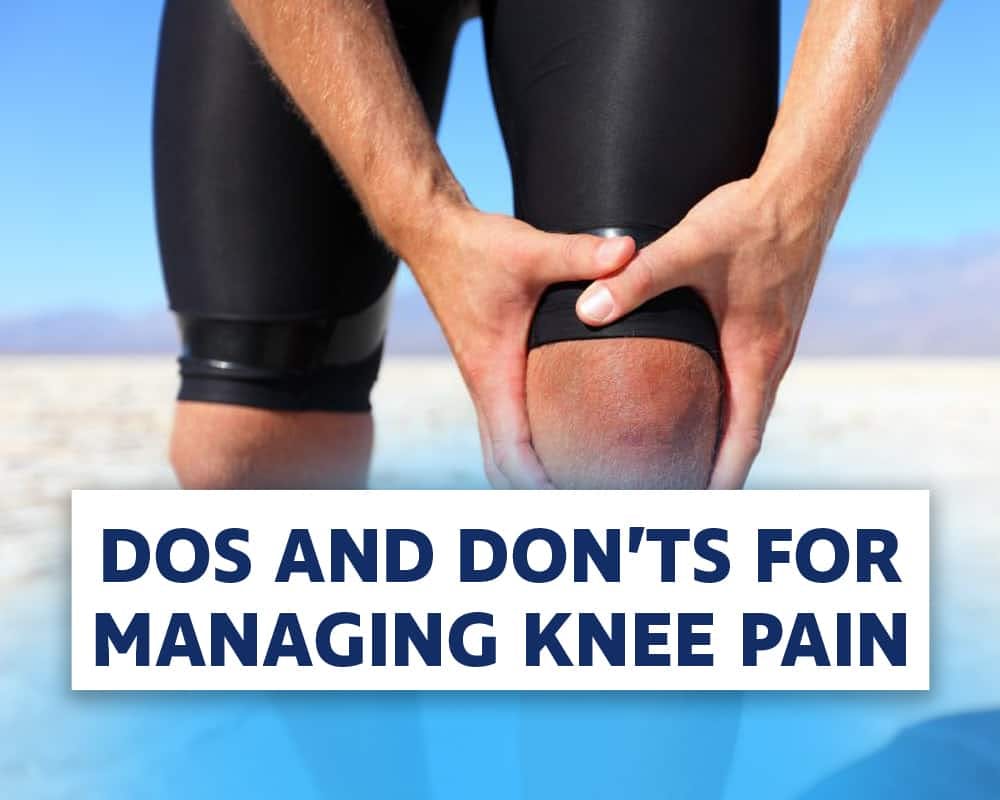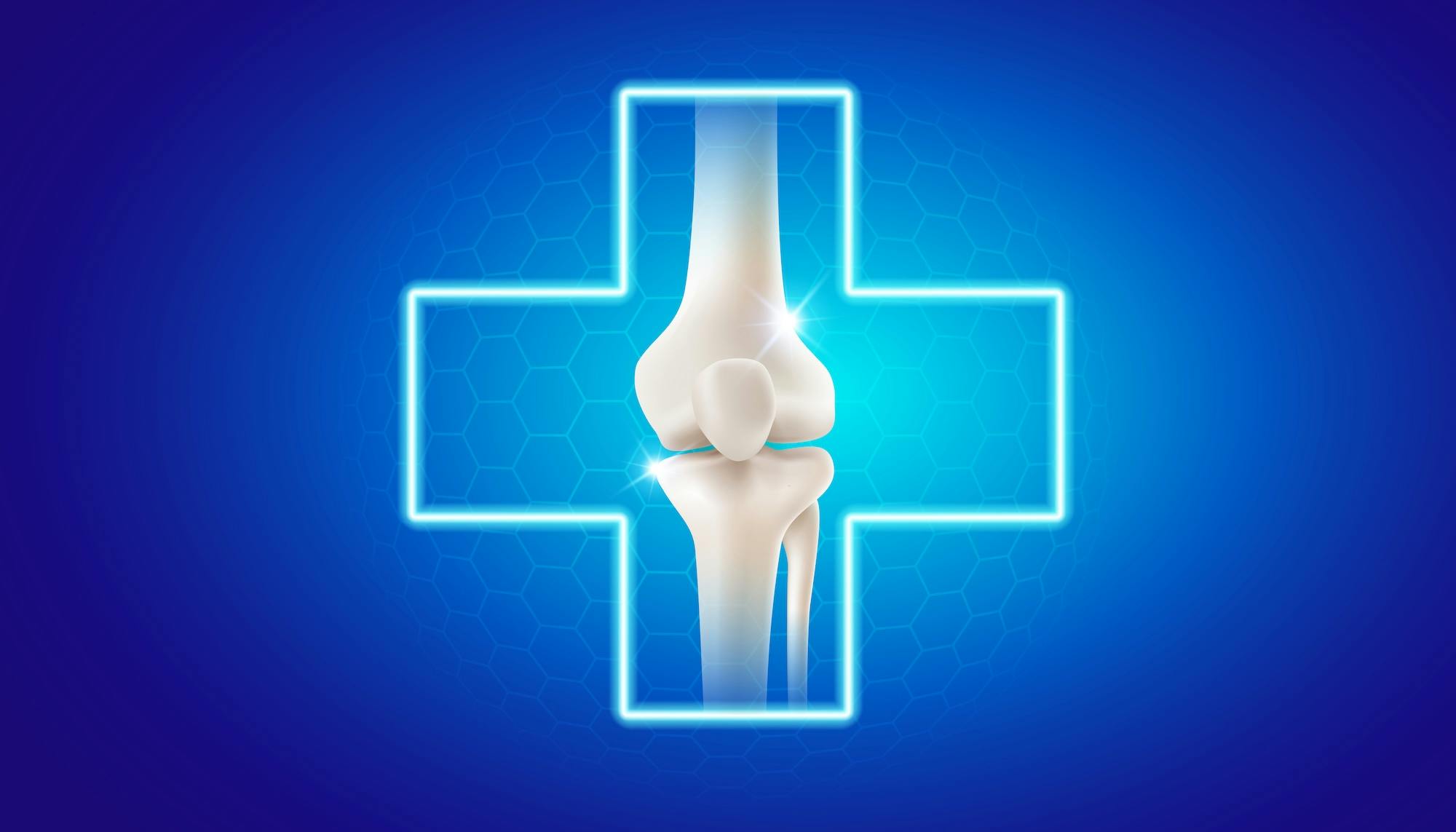- Blog
Dos and Don'ts for Managing Knee Pain
Posted on 04-16-2025 in Common Knee Injuries by Dr. Chris O'Grady

Posted on 04-16-2025 in Common Knee Injuries by Dr. Chris O'Grady
Knee injuries are one of the most prevalent and debilitating occurrences to athletes.
Knee Pain Dos
DO Get Expert Advice
If you’re suddenly dealing with new knee pain, make sure you have it checked out by a physician. Knee pain can be indicative of a severe injury, and getting it evaluated and treated quickly can prevent more damage to the joint and surrounding tissues.
DO Choose Low-Impact Exercise
It’s great to keep exercising, even if you have knee pain, but choose low-impact exercises that won’t exacerbate the pain or cause more damage. Stretching, weight training, and low-impact cardio can improve flexibility and help strengthen the muscles that offer the knee joint support. Great low-impact options include swimming, biking, and walking. Before working out, make sure to stretch and warm-up to avoid further injury. Check out the “Rehab Exercises” tab on our website for beneficial options.
DO Use the RICE Method
RICE stands for Rest, Ice, Compression, and Elevation. It is an excellent way to alleviate knee pain caused by arthritis or a minor injury. Rest the knee, use ice to help combat swelling (20 minutes, 3-4 times per day as needed), add a compressive bandage, and make sure you keep the knee elevated.
DO Play with Temperature
If you’ve injured the knee, use ice for the first 48-72 hours after the injury to numb pain and reduce swelling. This can be done for 20 minutes up to 4 times per day. Make sure you’re putting a barrier between your skin and the ice pack (e.g. towel, pillowcase), so you don’t damage or irritate the skin. Don’t have an ice pack? Grab a bag of frozen peas instead.
Knee Pain Don’ts
DON’T Jar Your Joints
Whether you’ve injured your knee or you have pain from arthritis, avoid jarring your joints. Exercise is great for increasing strength and flexibility, but avoid engaging in high-impact activities like kickboxing, jumping, or running. These cause unnecessary stress on the joint and can increase your pain and discomfort.
DON’T Overlook Your Weight
If you’re overweight, it’s putting more stress or pressure on knees that are already damaged. Reducing your weight can significantly reduce knee pain while improving the function of the joints. Even a small amount of weight loss can make a huge difference. Engaging in regular exercise helps accomplish your weight loss goals and reduce the stress on your joints.
DON’T Rest Too Much
After an injury, it is very tempting to abstain from activity in attempt to protect the knee. During the first 48 hours after an injury, resting and allowing the body to heal is ideal. However, after this time frame, resting too much can also cause problems! Not using the joint and surrounding musculature can lead to stiffness and muscle atrophy, which can lead to weakness and discomfort. Stretching and working on range of motion after an injury is crucial; engaging in low-impact exercise is also beneficial to maintain muscle mass.
Why O’Grady Orthopaedics
If you’re dealing with knee pain from an injury or arthritis, following these dos and don’ts can help. However, you also need to make sure to have your knee evaluated by a quality orthopaedic surgeon. Dr. Chris O’Grady at O’Grady Orthopaedics specializes in diagnosing and treating knee injuries and pain. He offers minimally invasive treatments to effectively reduce pain and get you back to your normal lifestyle quickly. Call today to set up your appointment.

March is National Nutrition Month®, and as part of the conversation, the North Florida Bone & Joint team wants to emphasize the impact diet can have on your bone health. Before diving in, it's essential to understand the role the skeleton plays in your body. Specifically, the skeleton—and the bones its comprised of—serve the following functions:

At North Florida Bone & Joint Specialists, we’re committed to delivering convenient, expert care throughout the Gulf Coast. As part of that commitment, we’re excited to announce the expansion of our clinical office footprint. In March, we opened two new locations in Milton and Navarre, FL, further enhancing our ability to serve patients across Northwest Florida.

Valentine’s Day is all about love—so why not show your joints some love, too? Whether you’re an athlete, an active adult, or simply looking to maintain mobility as you age, taking care of your joints is essential for long-term health and well-being. At North Florida Bone & Joint Specialists, we believe that self-care isn’t just about relaxation—it’s about making intentional choices to keep your body strong, pain-free, and resilient. Here are four self-care tips to keep your joints healthy and moving with ease: